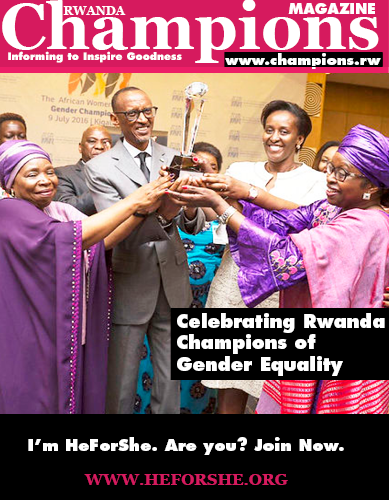UN Women Rwanda launches $6.3 million plan to boost women’s empowerment
UN Women Rwanda has launched a new four-year strategic plan that will require about $6.3 million to expand programs (…)

According to a recent study published in the Rwanda Biomedical Journal (RBC journal,) Rwandan women utilizing barrier methods such as condoms and traditional methods such as periodic abstinence or withdrawal for birth control are more prone to experiencing a subsequent pregnancy within a year. This contrasts with those employing longer-term contraceptive measures such as implants or injections.
The study titled “Return to Fertility after Discontinuation of Modern Contraceptive Methods in Rwanda” indicated that, within one year, 94 percent of women who relied on barrier and traditional methods for contraception became pregnant.
Conversely, the pregnancy rates were slightly lower for alternative methods, with a 92 percent rate for intrauterine devices (inserted into the uterus), 87 percent for pills, 83 percent for implants, and 81 percent for injections.
The research was conducted by Sylvain Hirwa Muzungu, a medical doctor and data scientist, along with Valens Rwema, a data scientist and statistician between June and September 2023. The study utilized data from the Rwanda Demographic and Health Survey (RDHS) 2020, involving approximately 10,000 women.
Muzungu stated that the research aimed to furnish evidence on the duration it takes for Rwandan women to conceive after using modern birth control methods. The objective is to offer valuable insights to policymakers and relevant organizations, facilitating the formulation of informed policies and practices.
He further emphasized, "Our research also aims to assist women in making informed decisions about family planning methods aligned with their fertility goals."
The study revealed that factors influencing delayed pregnancy after contraceptive use in Rwanda included a woman’s age, where older women experienced longer delays. The number of children also played a role, with more children leading to quicker fertility return. Surprisingly, the duration of contraceptive use did not significantly impact fertility return.
Muzungu explained: "Older women tend to have delayed pregnancy after contraceptive use.
As the age of a woman increases, their chance of early return of fertility after contraceptive methods decreases. So, you would understand that if someone is 40, for example, and another one is 20, and both have used injectables, the younger woman is going to become pregnant faster than the older woman."
Women’s health experts say credible researches with such concrete facts about modern contraception should be disseminated for empowering mothers to make informed choices regarding family planning depending on their needs.
UN Women Rwanda has launched a new four-year strategic plan that will require about $6.3 million to expand programs (…)
UN Women Rwanda has launched a new four-year strategic plan that will require about $6.3 million to expand programs (…)
African women leaders are calling for greater solidarity and collaboration to help more women attain leadership (…)
Women for Women International (WfWI) has appointed Nigerian development expert Thelma Ekiyor as its new global chief (…)

